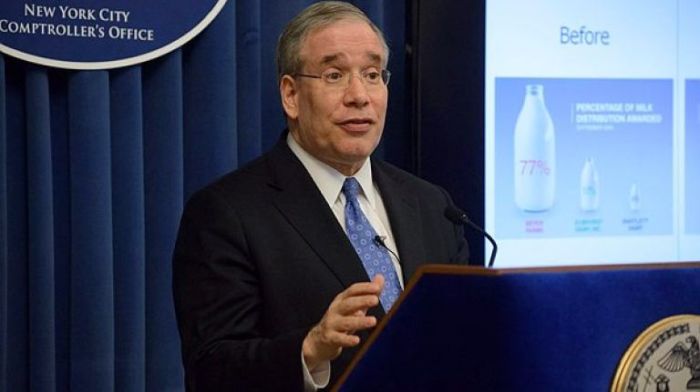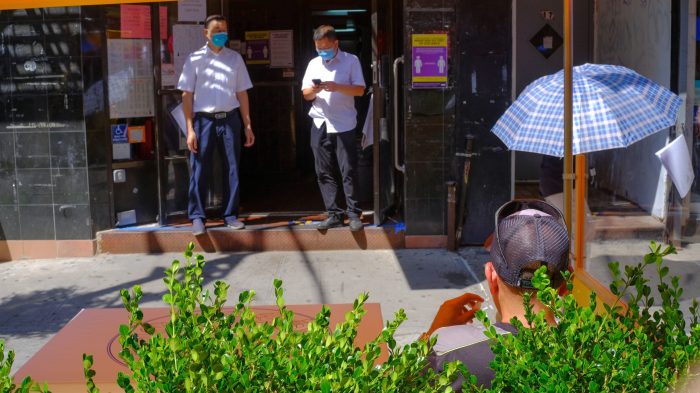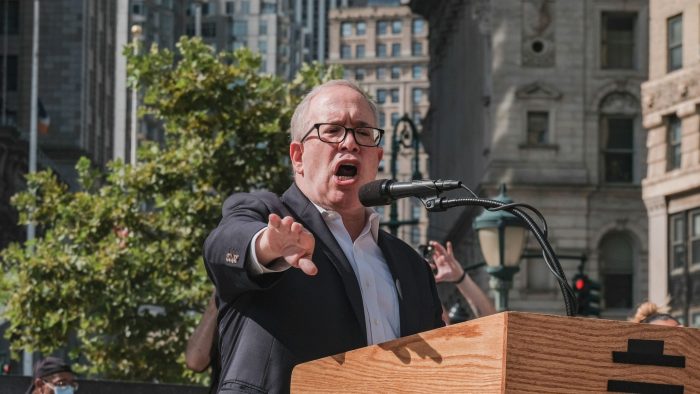Speaker Johnson, Finance Committee Respond To Mayor’s FY 2020 Preliminary Budget

City Council Speaker Corey Johnson (D-Chelsea, Hell’s Kitchen) alongside Council Finance Committee Chair Daniel Dromm (D-Queens), Capital Budget Subcommittee Chair Vanessa Gibson (D-Bronx) and the City Council yesterday released the Council’s response to the Mayor’s Fiscal 2020 Preliminary Budget.
The recommendations focus on the City Council’s vision to provide resources for New Yorkers while building the City’s reserves. Specifically, the City Council is calling on the Administration to boost budget reserves by $250 million. The City Council has also identified close to $1 billion in savings between Fiscal 2019 and Fiscal 2020.
Among the proposals and recommendations the Council is urging to be included in the Fiscal 2020 Executive Budget:
Support Wage Equity and Human Services Providers
- In order to sustain the current system of contracting out so many of our social services and to ensure pay parity for the human services workforce, the Council urges the Administration to add $106 million to increase human services providers’ indirect cost rates, $89 million to increase day care worker salaries, $5 million to support Assistant District Attorneys, and $15 million to increase wages for indigent defense attorneys.
Bolster the City’s Reserves and Safeguarding our Future
- The City needs sufficient reserves in case of an economic downturn to avoid service cuts and raising taxes. In recognition of this, the Council is proposing to boost the City’s reserves by $250 million. Additionally, to avoid losing federal funds, the Council calls for $40 million to ensure the City gets an accurate count on the upcoming 2020 Census.
Invest in our Schools and Improve Security
- Public schools should be brought to their Fair Student Funding level to meet the academic needs of the more than 1.1 million public school students. The Council calls for $200 million for Fair Student funding; $90 million for the redesign and expansion of the Comprehensive After School System, also known as COMPASS, which will double the number of slots from 47,000 to 100,000; $240 million for security cameras in all schools; and $50 million for bathroom renovations.
Protect New Yorkers in Need
- As part of the City Council’s vision to provide the appropriate resources for the many different needs that New Yorkers have, the Council has included proposals to strengthen our city and our citizens. Among those proposals are $16.5 million for the New York Immigrant Family Unity Project (NYIFUP) to help New Yorkers facing deportation; $11.7 to improve senior meals and support senior center kitchen staff; $20 million to increase the Department of Health and Mental Hygiene supportive housing; $1 million to expand child care services at CUNY; and $10 million for Fair Futures, a first-in-the-nation long-term support system for foster youth. The Council also calls for a $4.9 million allocation for 57 social workers, one for each of the Department of Homeless Services contracted hotels that house families with children.
Ensure Fairness in the Justice System
- The City Council wants to expand the pre-arraignment programming and calling for $2.2 million, increase the NYPD Collision Investigation Unit and expand evidence collection teams with $1.2 million in funding, open a community justice center in Far Rockaway, and prioritize Department of Homeless Services Peace Officers for Crisis Intervention Training.
Build for Tomorrow
- The Council is calling for $3.1 billion in capital funds to address, among other priorities, NYCHA’s long-term capital needs, prioritizing permanent housing under the Housing New York plan, install 50 miles of protected bike lanes and 30 miles of bus lanes per year, and doubling the Department of Transportation’s pedestrian plaza program.
Promote Budget Accountability
- The Council asks the Administration to increase the number of units of appropriations and capital budget lines, create a comprehensive capital project tracking system, and establish a NYC Ferry Budget Report.
“The budget response points to what this Council’s priorities are, which include investing in our schools, safeguarding our future, promoting budget accountability and protecting New Yorkers. Our main focus is helping New Yorkers, especially those who need it the most,” said Speaker Johnson in his second budget response.
Stringer, Rivera Intro Bill Boosting Rights of Tenants in Housing Search Process


New York City Comptroller Scott M. Stringer joined Council Members Andrew Cohen (D-Bronx) and Carlina Rivera (D-East Village, Gramercy Park) yesterday in proposing legislation (Int 1499-2019) that would require any landlord or leasing agent that charges a prospective tenant a credit check fee to share that credit report with the applicant, regardless of whether a lease is signed.
The proposed legislation would grant prospective tenants unprecedented access to their credit history at the moment they need that information the most. The bill would also mandate that prospective tenants not be charged a fee for a tenant screening report unless the rental unit is available during the time period that a renter is looking to occupy the dwelling, helping protect tenants from unfair fees that are charged by leasing and acting agents.
The measure follows Stringer’s 2017 report, entitled “Making Rent Count,” which aimed to help New Yorkers lift their credit scores, save money, and alleviate deep disparities in credit histories across the city. The report showed how adding rental information to credit files can help boost credit scores for New Yorkers and reduce credit disparities.
“When a tenant hands over an apartment application fee to have their credit history reviewed by a landlord or leasing agent, they deserve to have access to that credit report. The process of finding and qualifying for an apartment is exactly when a tenant needs their credit information the most and this bill would provide crucial insight into the health and accuracy of tenants’ credit and financial histories,” said Stringer.
“We need to demystify the apartment-hunting process in New York, and part of that is giving New Yorkers the chance to know what the credit scores used in their rental application actually are,” said Rivera.
Chin Joins Advocates To Push For Vendor Reform

City Council member Margaret Chin (D-Battery Park City, Chinatown) alongside Council member Carlos Menchaca (D-Brooklyn) this week will be leading the push for comprehensive vendor reform through passage of Intro 116, aimed at increasing the number of street vendors in the city.
Intro 1116 co-sponsored by Council Members Chin and Menchaca, aims to bring opportunities, fairness and consistent enforcement to a chaotic system created by a decades-long licensing cap that has forced vendors to operate in an underground market, putting many immigrant entrepreneurs at risk.
The measure would “would gradually expand the number of permits to vend foods on the streets and sidewalks of New York City.” Specifically, 400 new licenses would be issued every year beginning in 2019 until 2028.
Currently, there is a cap of about 5,000 street vending licenses, but Sean Basinski, Director of the Street Vendor Project at the Urban Justice Center, estimates there are actually between 10,000 and 12,000 food vendors when accounting for those operating without a license.
The event is slated for 9 a.m., Thursday, April 11, at the Steps of City Hall in Lower Manhattan.

































